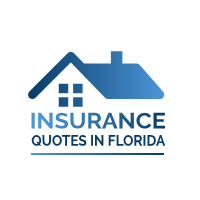HOW TO COMPARE HOME INSURANCE COMPANIES IN FLORIDA
Fl property insurance rates are determined by several factors starting from where the home is located, as well as the potential risk of the insurance companies having to pay a claim.
Also, Florida property insurance rates are the highest in the nation. Before you sign on the dotted line, here's a checklist of search tips.
1. Compare statewide costs and insurers
When it comes to home insurance in florida, you want to make sure you are going with a provider that is legitimate and credit worthy. Your first step should be to visit your state’s Department of Insurance website to learn the rating for each home insurance company licensed to conduct business in your state, as well as any consumer complaints lodged against the insurance company. The site should also provide a typical average cost of home insurance in different counties and cities.
These will help you determine which homeowners insurance carriers in florida you want to compare.
2. Do a company health check
Investigate florida home insurance companies you’re considering via their scores on the websites of the top credit agencies (such as A.M. Best, Moody's, J.D. Power, Standard & Poor's) and those of the National Association of Insurance Commissioners and Weiss Research. These sites track consumer complaints against the companies as well as general customer feedback, the processing of claims and other data. In some instances, these websites also rate a home insurance company's financial health to determine whether the company is able to pay out policies in the event you need to file a claim.
3. Look at claims response
Following a large loss, the burden of paying out-of-pocket to repair your home and waiting for reimbursement from your insurer could place your family in a difficult financial position. A number of the insurers are outsourcing core functions including the handling of claims.
Before purchasing a homeowners insurance policy, find out whether licensed adjusters or third-party call centers will be receiving and handling your claims calls. “Your agent should be able to provide feedback on his or her experience with a carrier, as well as its market reputation,” says Mark Galante, senior vice president and chief marketing officer at the PURE Group of Insurance Companies. “Look for a carrier with a proven track record of fair, timely settlements and make sure to understand your insurer’s stance on holdback provisions, which is when an insurance company holds back a portion of their payment until a homeowner can prove that they started repairs.”
4. Current Policyholder Satisfaction
Every company will say they have good claims service. However, cut through the clutter by asking your agent or a company representative what percentage of policyholders renews each year. Called the insurer’s retention rate, many companies report retention rates between 80% and 90%. You can also find satisfaction information in annual reports, online reviews and good old-fashioned testimonials from people you trust.
5. Get multiple quotes
“Obtaining multiple quotes is important when looking for any type of insurance; however, it is especially important for homeowner's insurance since coverage needs can vary so much," says Eric Stauffer. "Comparing several companies will yield the best overall results."
How many homeowners insurance quotes should you get? Contact five or more companies so that you know what people are offering and you have leverage in negotiations. But before collecting quotes from other companies, request a price from insurers you already have a relationship with. As previously mentioned, in many instances, a carrier you’re already doing business with (for your auto, boat, etc.) may offer better rates because you're an existing customer.
Some companies provide a special discount for seniors or for people who work from home. The rationale is both these groups tend to be on premises more often—leaving the house less prone to burglary.
6. Look beyond price
The annual premium is often what drives the choice to purchase a home insurance policy in florida, but don't look solely at price. “No two insurers use the same policy forms and endorsements, and policy wording can be very different,” says Bank. “Even when you think you're comparing apples to apples, there's usually more to it, so you need to compare coverages and limits.”
7. Talk to a real person
Stauffer feels the best way to get home insurance quotes is to go directly to the insurance companies or speak to an independent agent who deals with multiple companies, as opposed to a traditional “captive" insurance agent or financial planner who works for just one home insurance company. Bear in mind, though, “a broker licensed to sell for multiple companies often attaches their own fees to policies and policy renewals. This could cost hundreds extra a year simply by using them over a captive agent,” he notes.
Bank urges consumers to ask questions that give them a detailed sense of their options: “You want to consider different deductible scenarios to best weigh if it makes sense to opt for a higher deductible and self-insure,” he says.

